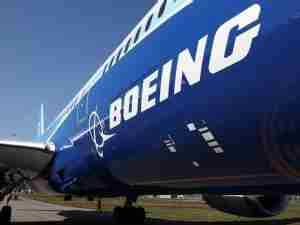Lawmakers sent a strong message to the European Union on its unilateral action, which is fiercely opposed by carriers, travel groups, labor and a number of countries, including China.
"We made it clear that the United States would pursue the matter," House Transportation Committee Chairman John Mica told reporters. "They were not very happy campers."
Mica discussed the matter with EU officials last week in Montreal, and called the initiative "a taxing scheme" and a violation of international law and trade treaties.
European officials had no comment on developments in Congress.
There was bipartisan support for action in the Republican-led House, which swiftly approved the measure with little debate.
But key Democrats on environmental issues praised Europe's effort to "take climate change seriously" and urged the bill's defeat.
"If we expect European companies to comply with U.S. law then we have to respect their laws," said Representative Henry Waxman of California, the top Democrat on the House Energy and Commerce Committee.
There is no companion legislation in the Senate although House passage was likely to lead to a proposal. It was unclear, however, if the Democratic-led chamber would support the House action.
Combined with Obama administration opposition, House approval alone sends an important message to Europe about sentiment in Washington.
The Obama administration has strong objections to inclusion of non-EU carriers in the plan, and does not see the current legal process in Europe addressing the matter satisfactorily, the State Department said in a statement.
Under the plan challenged in court but still due to take effect in January, airlines will have to buy permits under the EU's emissions trading scheme to help offset greenhouse gas pollution from commercial jetliners operating in or to and from Europe.
Under the law due to take effect Jan. 1, pending the outcome of legal wrangling, airlines will have to buy permits under the EU's emissions trading scheme to help offset greenhouse gas pollution from jets operating to and from Europe.
The change would impact the largest U.S. passenger and cargo carriers, which estimated on Monday the regulation would cost them more than $3 billion through 2020. These include United Airlines, Delta Air Lines, American Airlines, and US Airways>, and worldwide cargo haulers FedEx Corp and UPS.
Airlines would face stiff fines for noncompliance and said the economic hit would cost jobs in a tough economy, a factor motivating the congressional response.
Big U.S. airlines have been slower than carriers elsewhere to upgrade their fleets with technology offering greater fuel efficiency and lower emissions output. Boeing's 787, billed as the most environmentally friendly big jet, is due to make its maiden commercial flight this week for Japan's All Nippon Airways (ANA).
American, which has a large presence at London's Heathrow airport, has spearheaded the legal challenge of the new rule now before the European Court of Justice.
But airlines ultimately expect the matter will rest with aviation officials at the United Nations, an option the administration and supporters of the House measure advocated.
Others have raised objections, including India, China and countries in Latin America, Asia, the Middle East and Africa.
Beijing, especially, has threatened to delay purchases of planes made by Europe's Airbus -- a potential benefit for Airbus rival, U.S.-based Boeing Co. (Reuters)











